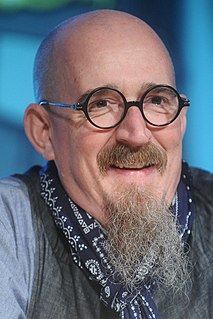Top 68 Quotes & Sayings by Brian Azzarello
Explore popular quotes and sayings by an American writer Brian Azzarello.
Last updated on December 21, 2024.
One of the reasons Batman works as a character is that it's not beyond possibility that he could exist - you could become Batman if you had a billion dollars at your disposal. There's nothing paranormal or superhuman or supernatural about that character. And I think his villains work the same way. You could be one of his villains just as easily.






















